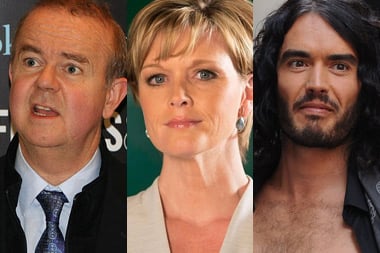Six biggest winners of the election campaign from outside politics

With less than a week to go before polling day, we take a look at the people and things that have benefitted most from the 2015 dose of election fever
Jermaine Haughton
For our politicians, it has been a gruelling and very likely sleepless few weeks since Parliament was dissolved and full-scale campaigning for the 2015 General Election began. We will only know which party has benefitted most from the arduous slog up and down the country this time next week – but already, Insights can highlight some movers, shakers and trends outside Westminster circles that have had a lift from the drive for votes…
1. Big data
Each of the main political parties has taken up a preferred analytics engine to profile voters and crunch web content in the name of victory. The Lib Dems use one called Contact Creator, Labour has Voter ID and the Tories use Merlin. The programmes function by calculating the likelihood of voters choosing each party in each UK constituency. In what has been described as the UK’s first “Big Data election”, think tank Demos has even set up its own division specifically for studying online chat: the Centre for the Analysis of Social Media (CASM). Mark Morley, director of industry at enterprise data specialists OpenText, said: “Political parties have learned that it is not just how you gather and archive information that counts, but how you use it to develop an action plan and strategy.”
2. Russell Brand
The Essex comedian scored a landmark coup by nabbing Ed Miliband for an unexpected YouTube video with Labour leader Ed Miliband this week. While Miliband used the opportunity as an attempt to garner support from Brand’s almost 10 million Twitter followers and more than one million YouTube subscribers, the video was perhaps far more significant for boosting Brand’s stock among young voters. According to pollsters at BritainThinks, young voters reported that they had a lot more respect for Brand than individual MPs. Equally, young people in a Dewsbury focus group felt that David Cameron’s dismissal of Brand as a “joke” will ultimately harm his campaign.
3. Polling agencies
With uncertainty lingering over the outcome and a repeat of a hung-Parliament scenario lurking in the foreground, the Mail claimed that 40% of the population has yet to make its mind up. With all this murk around the country’s leanings, competing polling agencies have become go-to tools for observers desperate to gauge the vote’s direction. But as if they know they are on a gravy train, the agencies themselves are in dispute. ComRes has the Conservatives and Labour on 35% and Ukip on 11%, while the Populus/Hanover Predictor thinks the Conservatives will win 279 seats in Westminster – 14 more than Labour. Their use will only intensify in the final furlong.
4. Julie Etchingham
The presenter of ITV’s debate between the seven party leaders received rave reviews from viewers and critics alike. Etchingham’s confidence and directness were praised over the more aggressive stance of Jeremy Paxman and Kay Burley in the previous face-off between Cameron and Miliband, with 72% of Telegraph readers saying in a poll that she held her own against those two juggernauts of news journalism. On social media during the debate, viewers expressed their empathy for Etchingham having to play referee among seven bickering politicians – but the strain has done the presenter’s career no harm. In fact, her successful moderation of the debate led the Telegraph to wonder whether she should run the country.
5. Have I Got News for You
The Ian Hislop-driven television panel show, renowned for taking satirical sideswipes at current affairs, has just received a wealth of free publicity after UKIP leader Nigel Farage made a police complaint about a recent edition. Reportedly, the UKIP leader took offence at a joke made by Sunday Times journalist and panellist Camilla Long last Friday, whereby she claimed to have been to South Thanet more times than he has. South Thanet is, of course, Farage’s target constituency. In response, Farage said her comments were untrue and in breach of Section 106 of the Representation of the People Act. However, the kerfuffle was quickly dampened when police dismissed the complaint and confirmed that no further action would be taken.
6. Fish
Over the past few months, prominent politicians from Boris Johnson to Ruth Davison have been pictured cradling our acquatic friends. Why? Well, that’s largely down to the work of Greenpeace. With the vote in Britain’s coastal areas remaining eye-wateringly marginal, politicians are extra keen to make sure they do enough to win favour from voters. As such, the environmental group used the opportunity to launch its Coastal Champions Action Plan, lobbying for greater government support for fisherman and coastal communities. The 25-stop boat tour of England and Wales gained the support of more than 120 politicians pledging to prioritise the fishing industry’s needs – in particular, the controversial fishing quota allocation system. Cue another stunning PR success for Greenpeace, whose shrewd campaigning has been noted on Insights before.
Image of Ian Hislop courtesy of the Wikimedia Commons
Image of Julie Etchingham courtesy of ITV News
Image of Russell Brand courtesy of Everett Collection / Shutterstock

Press & Media Enquiries
For more information or to request interviews, contact CMI's Press Team on 020 7421 2705 or email press.office@managers.org.uk


